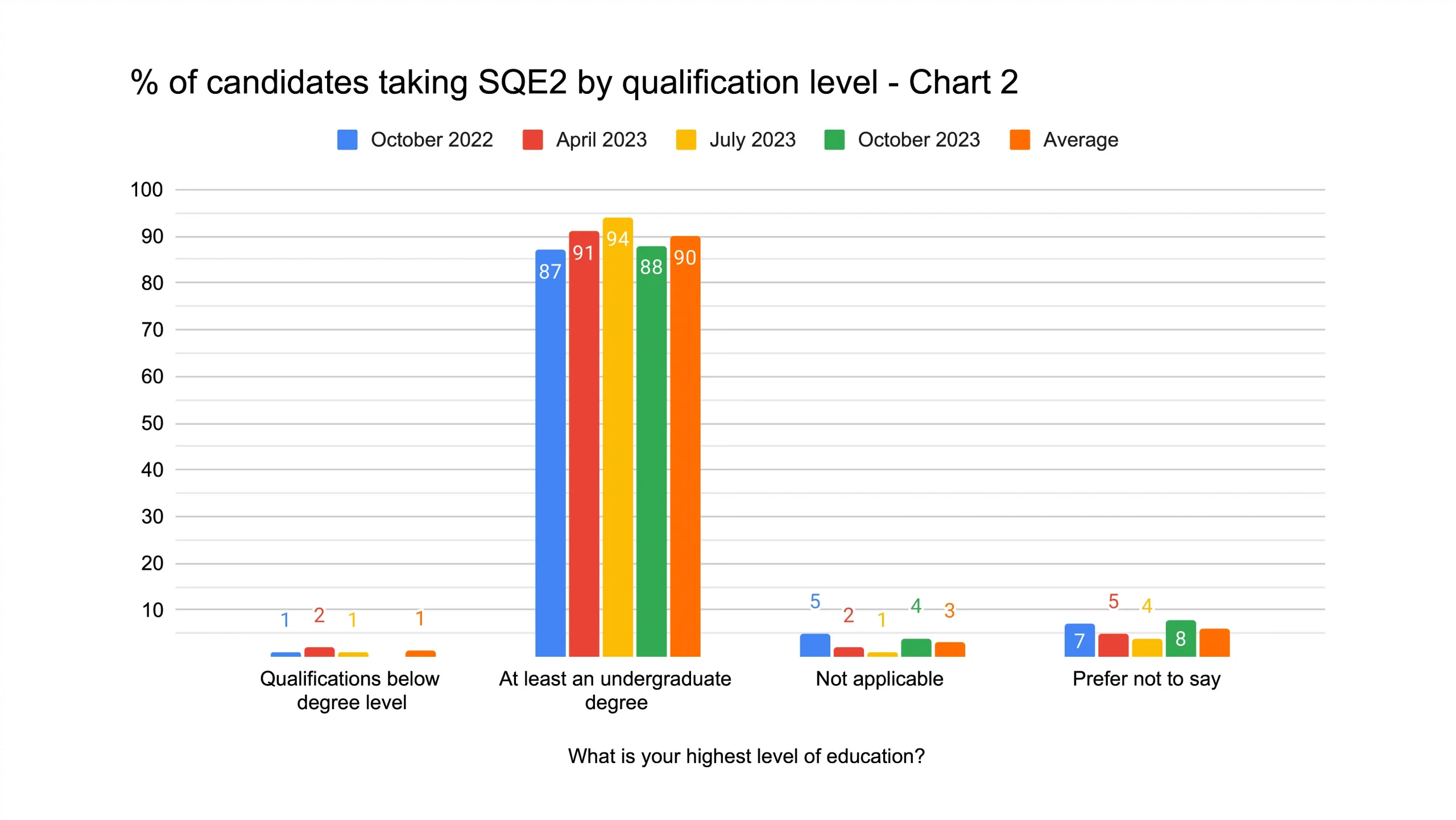A look at the SQE2 exam results for the past few months (October 2022, April 2023, July 2023 and October 2023) gives an interesting perspective on the type of candidates who tend to succeed. A detailed study of candidates based on age, qualifying work experience, and qualification gives useful insights. The pass mark for each chosen month helps better understand the different cohorts of students taking part:
Does age matter?
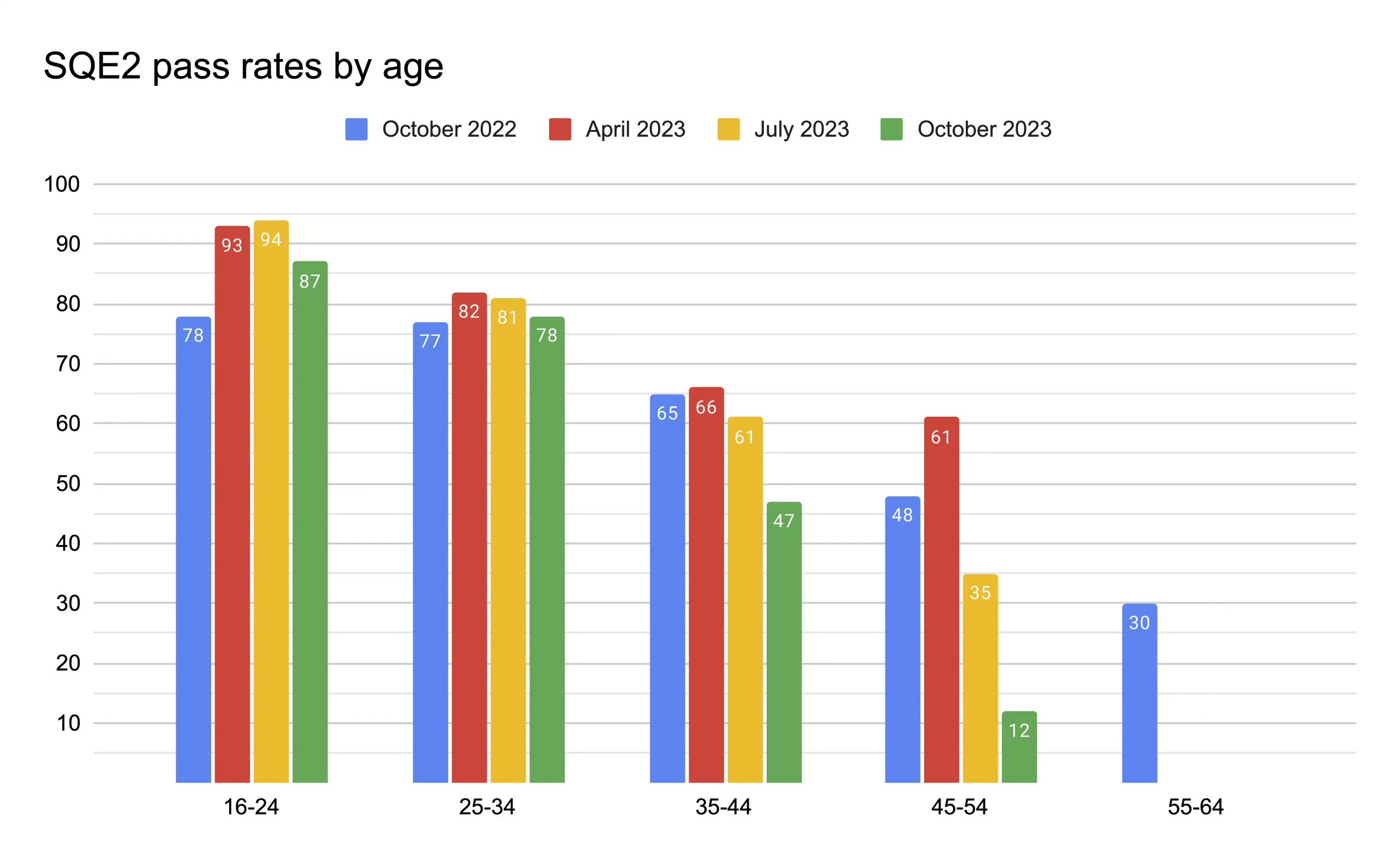
From the chart above, we can see that pass rates can be quite high whatever the age group. However, a closer look shows that this fluctuates for the 45-54 and 55-64 age groups. There are no figures for the 65+ age group. For July 2023 and October 2023 the pass rates for the 45-54 age group have been 35% and 12%. There are no pass rates for the 55-64 age group for April 2023, July 2023 and October 2023, although we can note a 30% pass rate in October 2022.
It seems that fewer people from the older age groups (45-54, 55-64 and 65+) sit for the exams. In October 2023, only 5% of the total number of students were in the 45-54 age group.
Is it important to have qualifying work experience before taking sqe2?
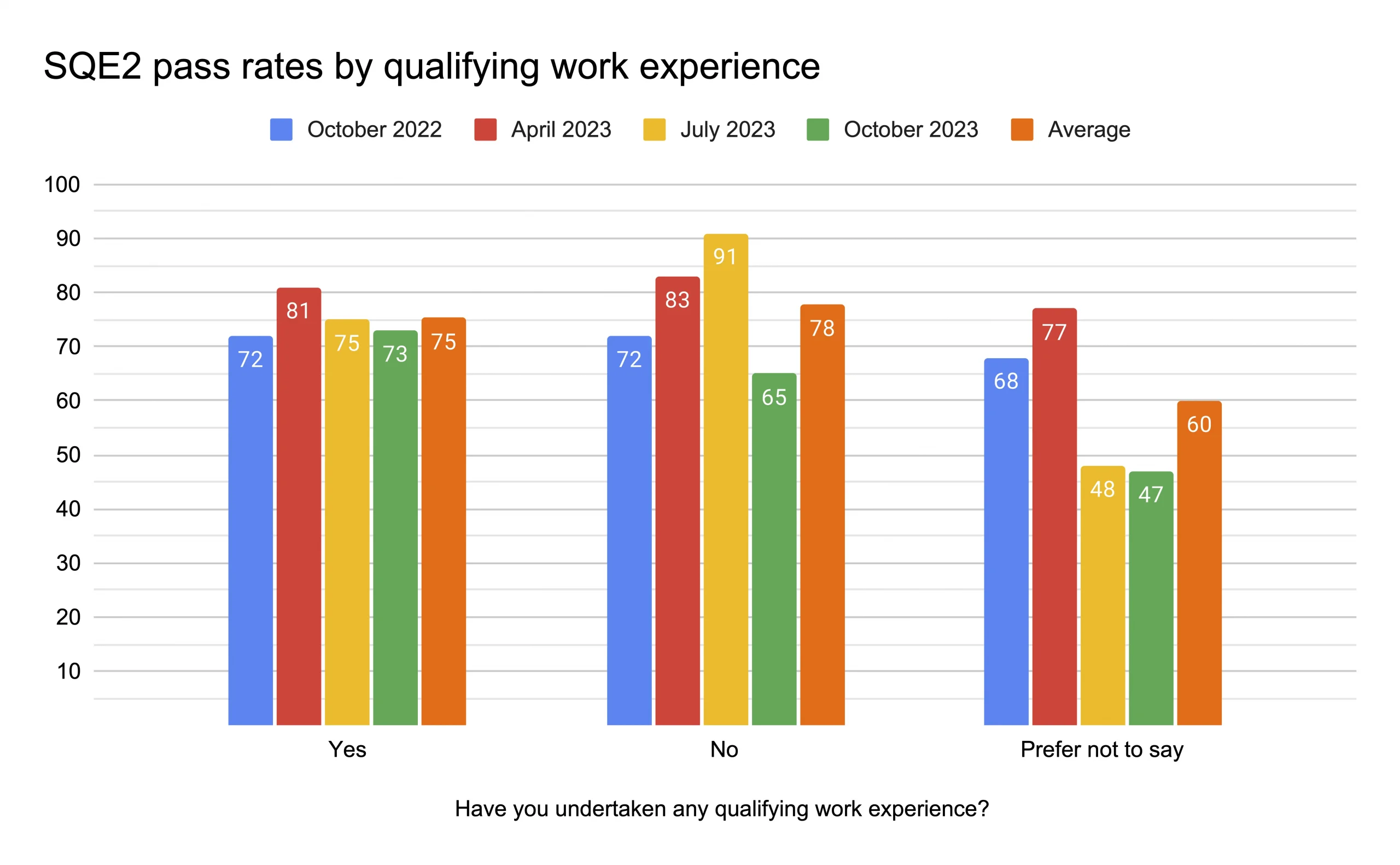 Surprisingly, on average people with no Qualifying Work Experience (QWE) (78%) have passed the SQE2 exams without any problem for October 2022, April 2023, July 2023 and October 2023 cohorts. In July 2023, a surprising 91% of students with no Qualifying Work Experience passed. This is especially interesting as SQE2 comprises a written and an oral component for the assessments and students are tested on their legal knowledge and skills. The exams comprise 16 stations: 12 written stations and four oral stations — that assess both skills and application of legal knowledge. It is mandatory to have two years’ work experience to qualify as a solicitor but students can sit for the SQE2 exams without prior work experience.
Surprisingly, on average people with no Qualifying Work Experience (QWE) (78%) have passed the SQE2 exams without any problem for October 2022, April 2023, July 2023 and October 2023 cohorts. In July 2023, a surprising 91% of students with no Qualifying Work Experience passed. This is especially interesting as SQE2 comprises a written and an oral component for the assessments and students are tested on their legal knowledge and skills. The exams comprise 16 stations: 12 written stations and four oral stations — that assess both skills and application of legal knowledge. It is mandatory to have two years’ work experience to qualify as a solicitor but students can sit for the SQE2 exams without prior work experience.
However, students with QWE have done extremely well at the exams too, with an average of 75% passing. There is also a high percentage of people in the “Prefer not to say” category passing the exams (77%). It is eventually the students’ choice whether to have the QWE before or after securing a pass in SQE1 and SQE2 exams.
Is it necessary to have a degree?
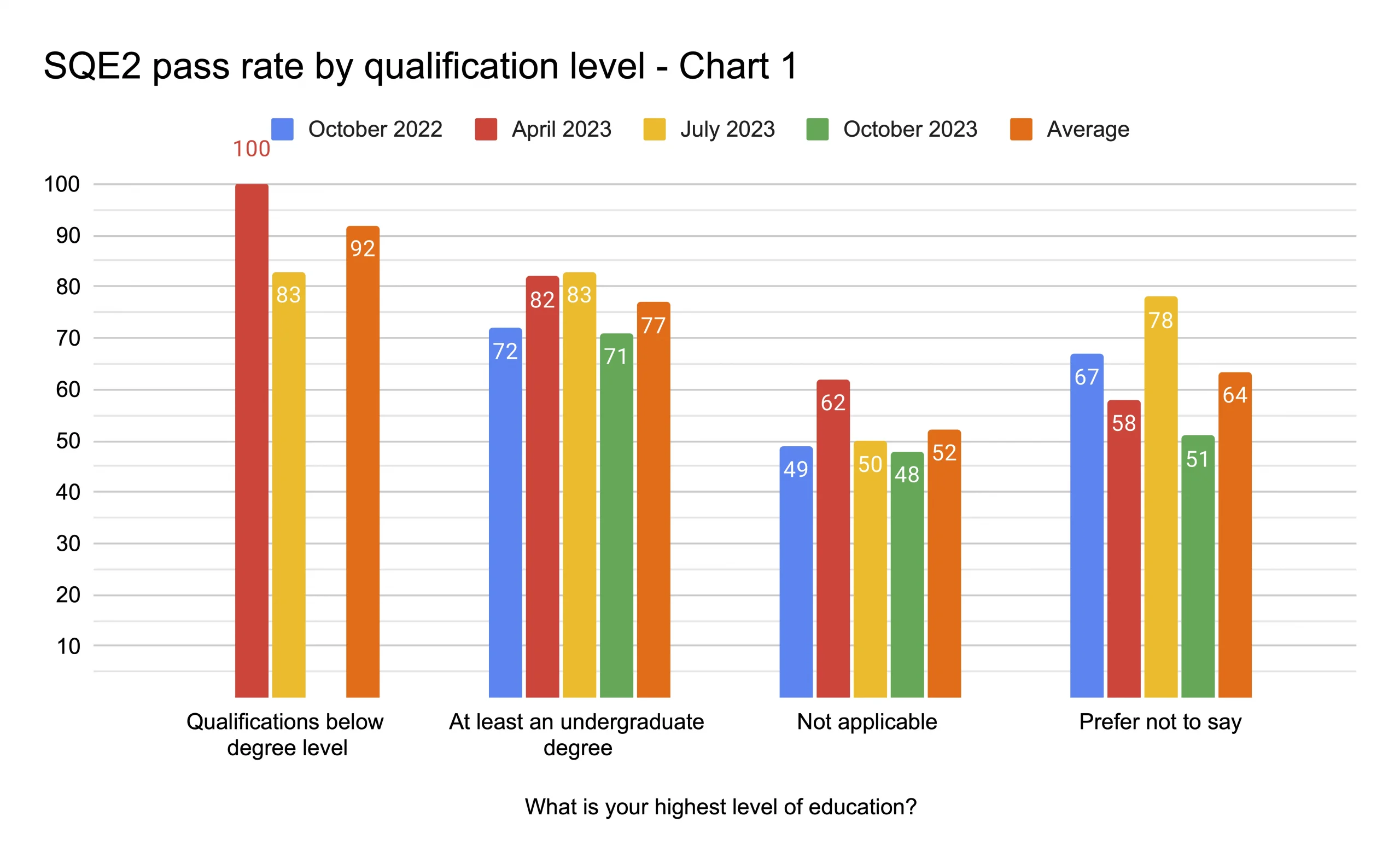 Chart 1 above suggests that it may not be necessary to have a degree to pass SQE2 exams. However, the pass rate alone is not determinative. Chart 2 shows there are significantly more students taking part in the exams with at least an undergraduate degree. On average 90% of students taking part have got at least an undergraduate degree. The average pass rate for students with at least an undergraduate degree is 77%.
Chart 1 above suggests that it may not be necessary to have a degree to pass SQE2 exams. However, the pass rate alone is not determinative. Chart 2 shows there are significantly more students taking part in the exams with at least an undergraduate degree. On average 90% of students taking part have got at least an undergraduate degree. The average pass rate for students with at least an undergraduate degree is 77%.
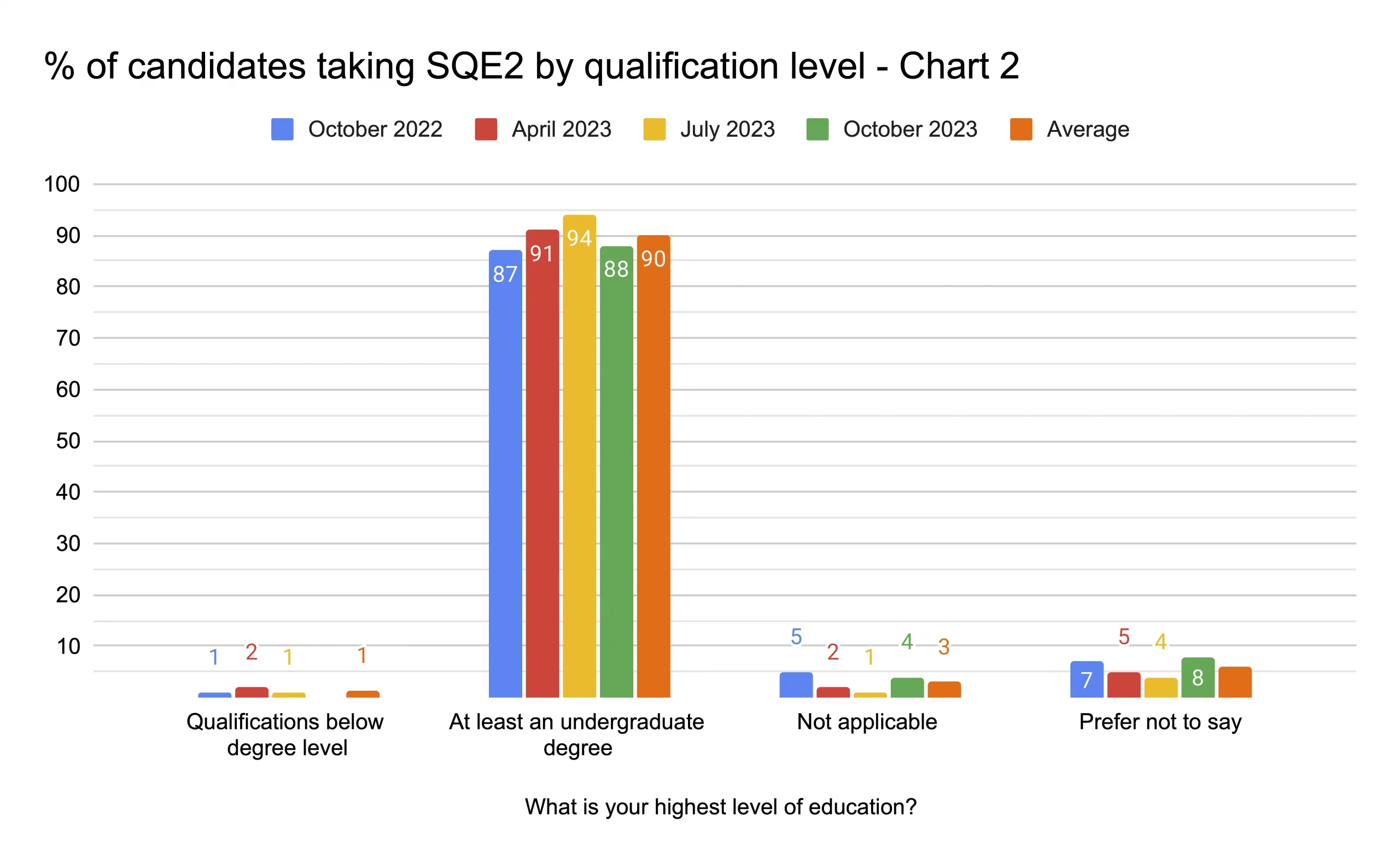 This may suggest that having a degree could give students a sound foundation to qualify as a solicitor. The data suggests they are more likely to pass the SQE2 exam.
This may suggest that having a degree could give students a sound foundation to qualify as a solicitor. The data suggests they are more likely to pass the SQE2 exam.
A look at the pass mark
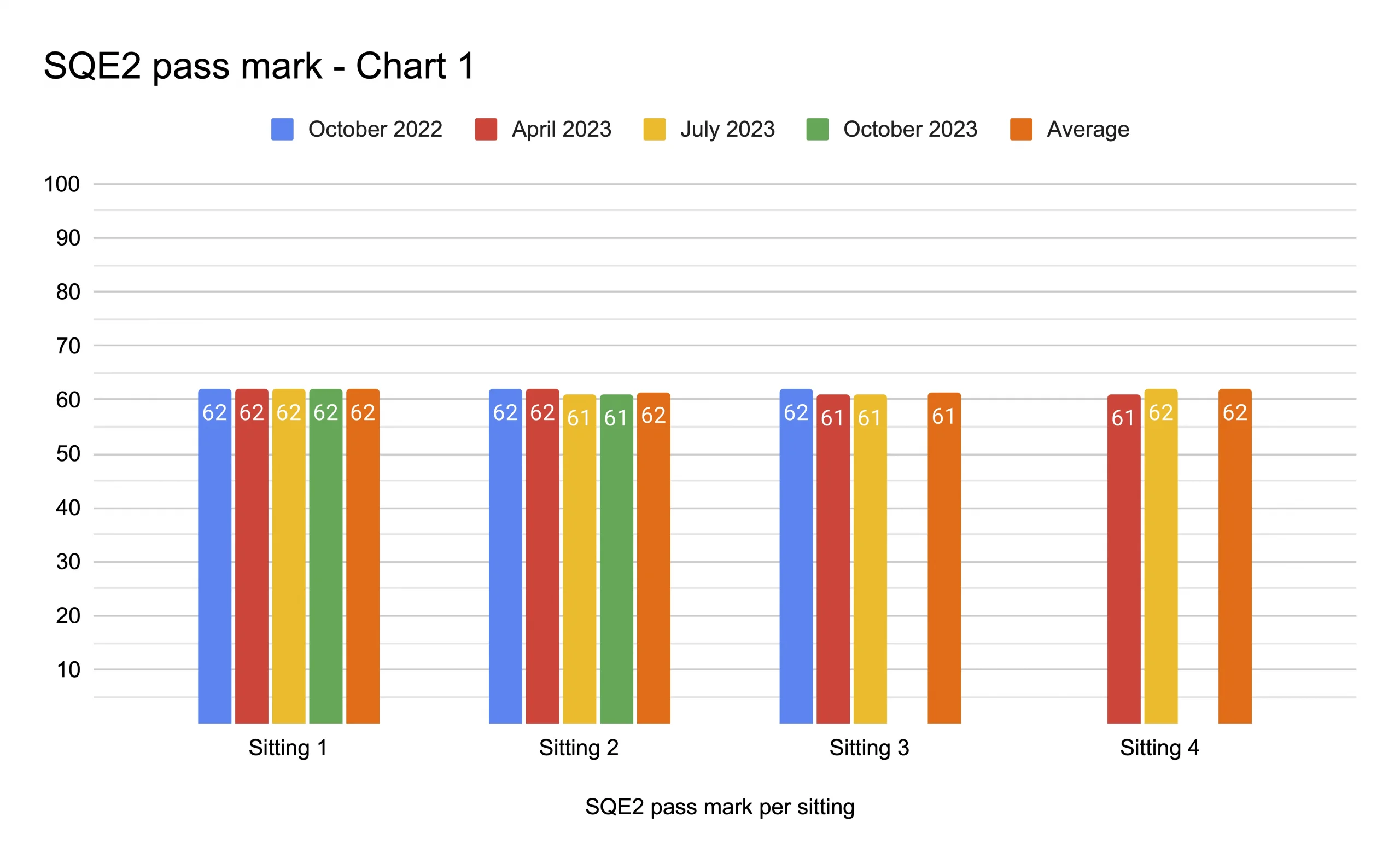 The pass mark for SQE2 exams may vary for each sitting and each cohort of students. In October 2022, the pass mark for each sitting was 62%. In April 2023, the pass mark was 62% for sittings 1 and 2 and 61% for sittings 3 and 4. In July 2023, the pass mark was 62% for sittings 1 and 4 and 61% for sittings 2 and 3. Finally in October 2023, the pass mark was 62% for sitting 1 and 61% for sitting 2.
The pass mark for SQE2 exams may vary for each sitting and each cohort of students. In October 2022, the pass mark for each sitting was 62%. In April 2023, the pass mark was 62% for sittings 1 and 2 and 61% for sittings 3 and 4. In July 2023, the pass mark was 62% for sittings 1 and 4 and 61% for sittings 2 and 3. Finally in October 2023, the pass mark was 62% for sitting 1 and 61% for sitting 2.
The pass mark is determined by a panel of solicitors once the candidates sit for the exams. It is based on what they believe a ‘Day One’ solicitor should be competent in.
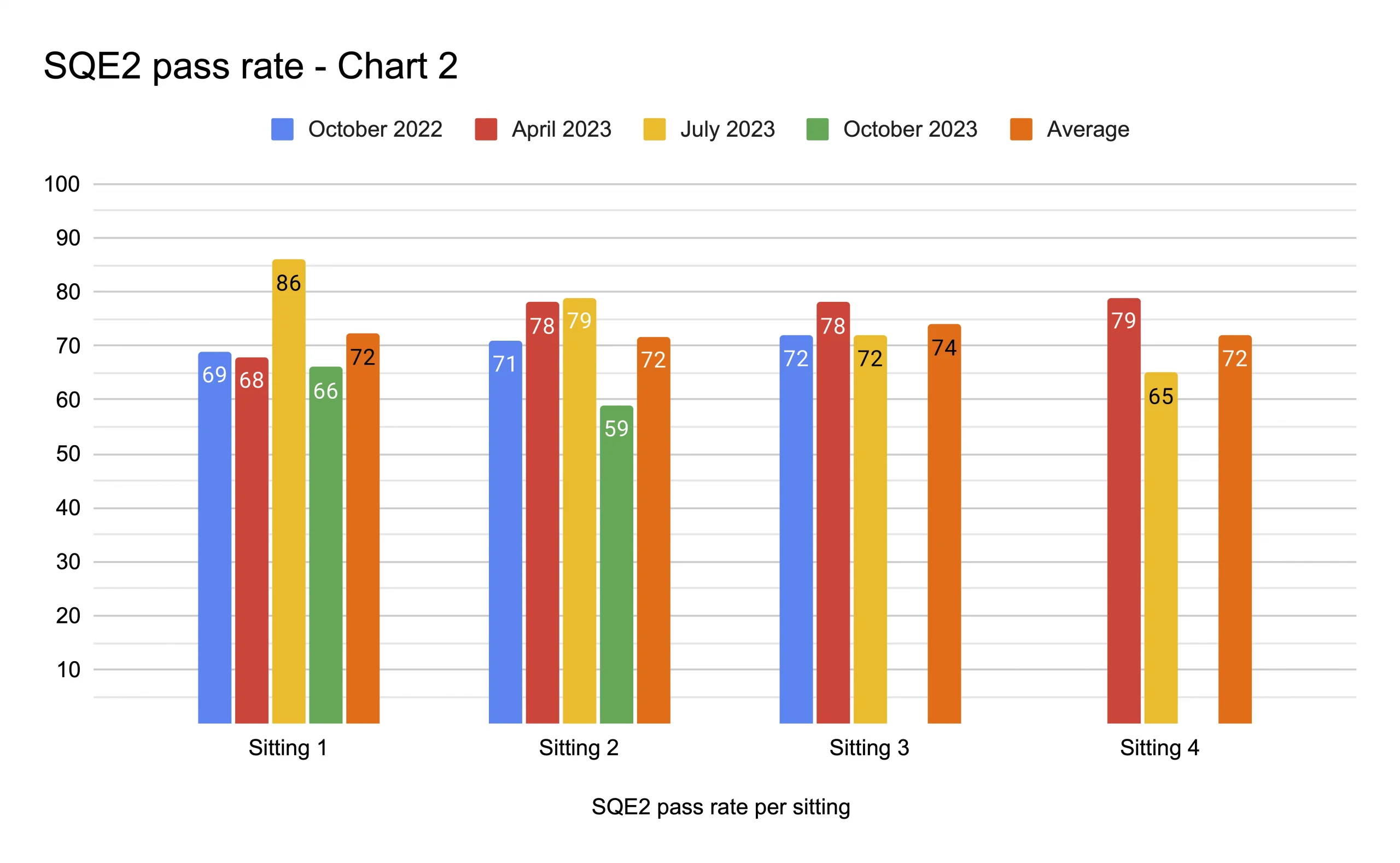 However, it is to be noted that SQE2 has a single pass mark for the overall 16 station assessment, although there may be different pass marks between sittings due to the oral stations being different.
However, it is to be noted that SQE2 has a single pass mark for the overall 16 station assessment, although there may be different pass marks between sittings due to the oral stations being different.
As the pass mark is quite high, it is important to put in the required effort and study time in order to pass the SQE2 exams.
We note that the pass rate for all sittings of the SQE2 exams has been quite high, and encouraging, with an exceptional pass rate of 86% for Sitting 1 in July 2023.
Check out our SQE2 preparation course here.http://futuresolicitor.co.uk/sqe2/
